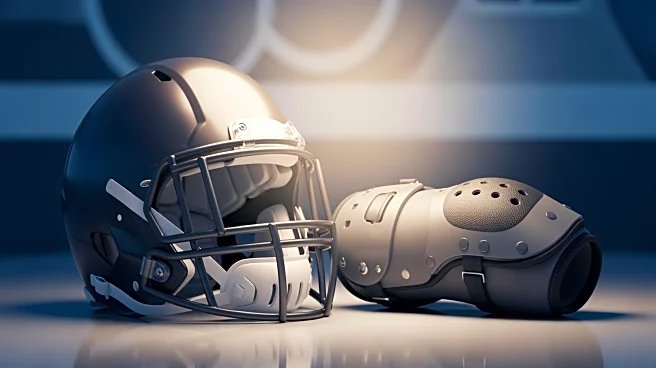What's Happening?
Washington Commanders quarterback Jayden Daniels has received positive news regarding his recent elbow injury. An MRI and medical evaluations revealed that Daniels' dislocated left elbow did not result in ligament damage, and he will not require surgery.
This development means Daniels will not be immediately placed on injured reserve, leaving open the possibility of his return this season. The injury occurred during a game against the Seattle Seahawks, and while Daniels' season is not definitively over, the Commanders must consider the risks of further injury if he returns prematurely.
Why It's Important?
The news of Daniels avoiding surgery is crucial for the Commanders, as it keeps alive the possibility of their starting quarterback returning to play this season. Daniels has been instrumental in the team's offensive strategy, and his absence could affect their competitiveness in upcoming games. The decision not to place Daniels on injured reserve reflects the team's hope for a turnaround in their season, contingent on Daniels' recovery. However, the Commanders must balance the urgency of his return with the potential long-term implications for his health.
What's Next?
The Commanders will continue to evaluate Daniels' recovery progress and make decisions based on his readiness to return to the field. The team may need to adjust their strategy and explore alternative quarterback options if Daniels' recovery is delayed. The Commanders' performance in the coming weeks will likely influence their decision on whether to expedite Daniels' return or prioritize his long-term health.
Beyond the Headlines
Daniels' injury highlights the inherent risks of professional football and the importance of player safety protocols. It may prompt discussions within the league about improving protective measures and injury management strategies, particularly for quarterbacks who are frequently exposed to high-impact plays. The situation also raises ethical considerations about the pressure on players to return from injury and the potential consequences for their long-term health.















